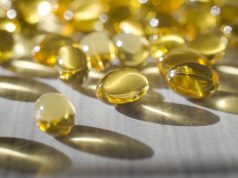Improvement in markers of insulin resistance, hormone status, triglycerides, oxidative stress
TUESDAY, Aug. 9, 2016 (HealthDay News) — For women with polycystic ovary syndrome (PCOS), soy isoflavones improve metabolic status, according to a study published online Aug. 4 in the Journal of Clinical Endocrinology & Metabolism.
Mehri Jamilian, M.D., from the Arak University of Medical Sciences, and Zatollah Asemi, Ph.D., from the Kashan University of Medical Sciences, both in Iran, examined the effects of soy isoflavones on the metabolic status of patients with PCOS. Seventy women diagnosed with PCOS according to the Rotterdam criteria, aged 18 to 40 years, were randomized to receive 50 mg/day soy isoflavones or placebo for 12 weeks.
The researchers found that administration of soy isoflavones significantly decreased circulating serum levels of insulin and homeostasis model of assessment-estimated insulin resistance compared with the placebo group (both P < 0.001), and increased the quantitative insulin sensitivity check index (P = 0.01). Compared with placebo, soy isoflavone administration correlated with significant decreases in free androgen index (P < 0.001) and serum triglycerides (P = 0.04). A significant increase was seen in plasma total glutathione (P = 0.04), and a significant decrease was seen in malondialdehyde levels (P = 0.001) with soy isoflavone versus placebo. Soy isoflavone intake had no significant effect on other lipid profiles and inflammatory and oxidative stress markers.
“Soy isoflavone administration for 12 weeks in women with PCOS significantly improved markers of insulin resistance, hormonal status, triglycerides, and biomarkers of oxidative stress,” the authors write.
Copyright © 2016 HealthDay. All rights reserved.








